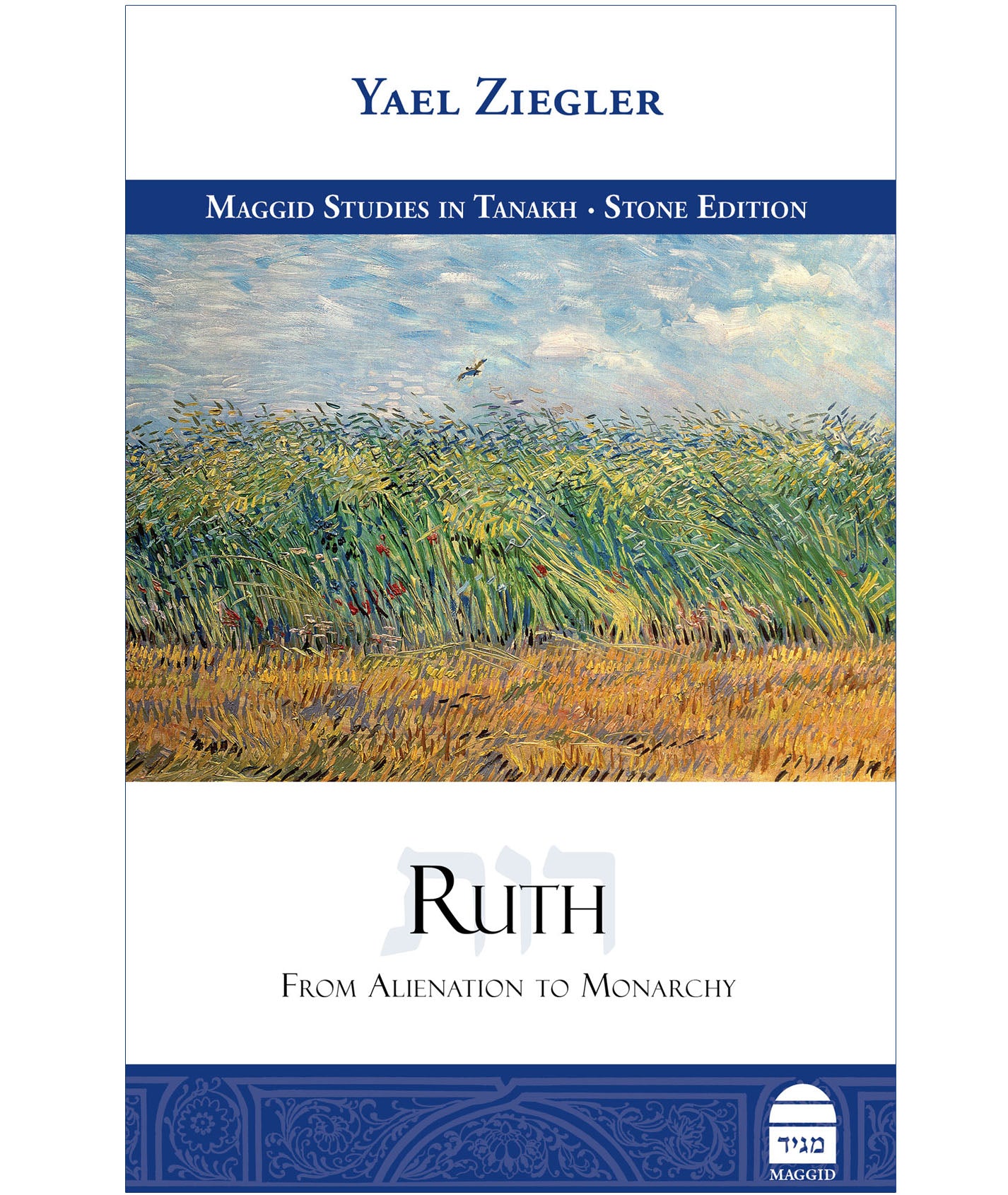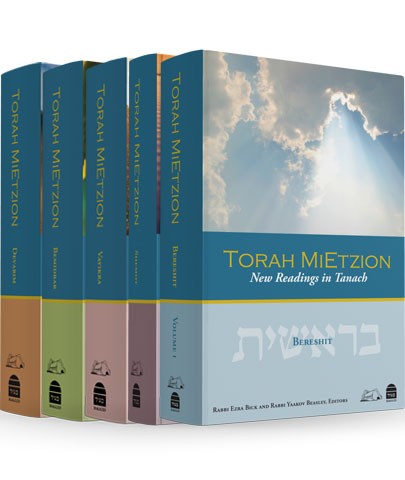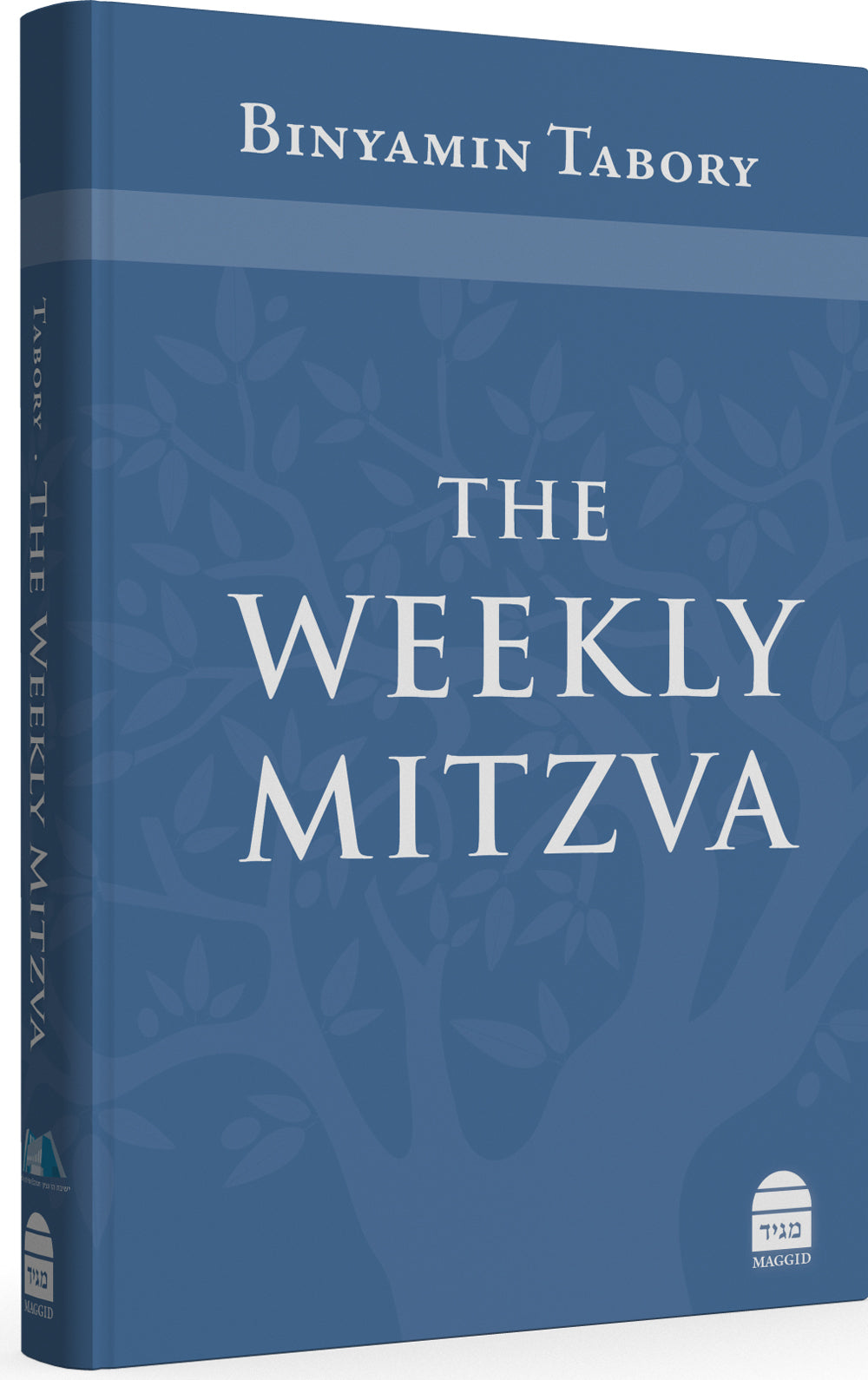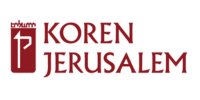
 The Koren Publishers' Newsletter is excited to announce a new monthly feature; Staff Picks. Every month a different member of our team will tell us about some of their favorite titles or give their recommendations for books that you may have missed, but certainly deserve your attention. Meet the people who make the books you love, and find out which are their favorites.
Our first list comes from Rabbi Reuven Ziegler:
Rabbi Reuven Ziegleris Chairman of the Editorial Board at Koren Publishers Jerusalem, Director of Research at the Toras HoRav Foundation, and Founder and Editor-in-Chief of Yeshivat Har Etzion’s Israel Koschitzky Virtual Beit Midrash. He is the author of Majesty and Humility: The Thought of Rabbi Joseph B. Soloveitchik and numerous articles, and co-editor of Rav Soloveitchik’s MeOtzar HoRav series. He is also the editor of many books, including the writings of Rav Aharon Lichtenstein, Rav Soloveitchik, and Rav Yehuda Amital
1)Confrontation and Other Essays by Rabbi Joseph B. Soloveitchik
The Koren Publishers' Newsletter is excited to announce a new monthly feature; Staff Picks. Every month a different member of our team will tell us about some of their favorite titles or give their recommendations for books that you may have missed, but certainly deserve your attention. Meet the people who make the books you love, and find out which are their favorites.
Our first list comes from Rabbi Reuven Ziegler:
Rabbi Reuven Ziegleris Chairman of the Editorial Board at Koren Publishers Jerusalem, Director of Research at the Toras HoRav Foundation, and Founder and Editor-in-Chief of Yeshivat Har Etzion’s Israel Koschitzky Virtual Beit Midrash. He is the author of Majesty and Humility: The Thought of Rabbi Joseph B. Soloveitchik and numerous articles, and co-editor of Rav Soloveitchik’s MeOtzar HoRav series. He is also the editor of many books, including the writings of Rav Aharon Lichtenstein, Rav Soloveitchik, and Rav Yehuda Amital
1)Confrontation and Other Essays by Rabbi Joseph B. Soloveitchik
 It is very hard to choose one book from among the Maggid Modern Classics series, because they are uniformly superb. Instead, I want to draw attention to one that could easily be overlooked. The first four essays of this volume constitute, to my mind, the best and most accessible introduction to Rav Soloveitchik’s thought. After reading them, you will understand why an early reviewer of Rav Soloveitchik’s works famously said, “If I am not mistaken, people will still be reading him in a thousand years.”
2) By His Light: Character and Values in the Service of God by Rabbi Aharon Lichtenstein
It is very hard to choose one book from among the Maggid Modern Classics series, because they are uniformly superb. Instead, I want to draw attention to one that could easily be overlooked. The first four essays of this volume constitute, to my mind, the best and most accessible introduction to Rav Soloveitchik’s thought. After reading them, you will understand why an early reviewer of Rav Soloveitchik’s works famously said, “If I am not mistaken, people will still be reading him in a thousand years.”
2) By His Light: Character and Values in the Service of God by Rabbi Aharon Lichtenstein
 Of all our books, this may be closest to my heart. Mori verabbi Rav Lichtenstein zt”l was a towering figure – spiritually, intellectually, and ethically. His thousands of students, among whom I feel very privileged to count myself, looked to him as a beacon of wisdom and integrity. No matter what subject he addressed, we knew that it would be with his signature combination of depth, breadth, balance, sincerity, and responsibility. This book, which addresses some of the most fundamental issues of personal growth and religious development, makes his thought accessible to the broader public in an engaging and user-friendly way. And since it is evident, as his students can testify, that he strove to live his ideals to the fullest, the inspiring personality of the author also shines through.
3) Ruth: From Alienation to Monarchy by Dr. Yael Ziegler
Of all our books, this may be closest to my heart. Mori verabbi Rav Lichtenstein zt”l was a towering figure – spiritually, intellectually, and ethically. His thousands of students, among whom I feel very privileged to count myself, looked to him as a beacon of wisdom and integrity. No matter what subject he addressed, we knew that it would be with his signature combination of depth, breadth, balance, sincerity, and responsibility. This book, which addresses some of the most fundamental issues of personal growth and religious development, makes his thought accessible to the broader public in an engaging and user-friendly way. And since it is evident, as his students can testify, that he strove to live his ideals to the fullest, the inspiring personality of the author also shines through.
3) Ruth: From Alienation to Monarchy by Dr. Yael Ziegler
 Even though all the volumes of the Maggid Studies in Tanakh are excellent, it is easy for me to choose a favorite. After reading this extremely insightful book, you emerge with a profound appreciation and understanding not only of Ruth’s religious depth and literary beauty, but also of its surprisingly contemporary relevance. In its clarity and sensitivity, in its skillful use of ancient and modern sources, and in its originality, this book is a model for future scholarship. I think it would be my favorite even if I weren’t married to the author.
4) Torah and Western Thought: Intellectual Profiles of Orthodoxy and Modernity edited by Rabbis Meir Y. Soloveichik, Stuart Halpern and Shlomo Zuckier
Even though all the volumes of the Maggid Studies in Tanakh are excellent, it is easy for me to choose a favorite. After reading this extremely insightful book, you emerge with a profound appreciation and understanding not only of Ruth’s religious depth and literary beauty, but also of its surprisingly contemporary relevance. In its clarity and sensitivity, in its skillful use of ancient and modern sources, and in its originality, this book is a model for future scholarship. I think it would be my favorite even if I weren’t married to the author.
4) Torah and Western Thought: Intellectual Profiles of Orthodoxy and Modernity edited by Rabbis Meir Y. Soloveichik, Stuart Halpern and Shlomo Zuckier
 The twentieth century produced many outstanding figures who bridged the worlds of tradition and modernity, and this book presents ten of the most fascinating. Although collections of articles are often uneven, in this book the editors carefully chose the writers and subjects and produced an outstanding volume. Two similarly outstanding collections are Judaism’s Encounter with Other Cultures and Books of the People: Revisiting Classic Works of Jewish Thought.
5) Adjusting Sights by Rabbi Haim Sabato
The twentieth century produced many outstanding figures who bridged the worlds of tradition and modernity, and this book presents ten of the most fascinating. Although collections of articles are often uneven, in this book the editors carefully chose the writers and subjects and produced an outstanding volume. Two similarly outstanding collections are Judaism’s Encounter with Other Cultures and Books of the People: Revisiting Classic Works of Jewish Thought.
5) Adjusting Sights by Rabbi Haim Sabato
 In this autobiographical novel by a prominent rosh yeshiva and an award-winning novelist, two friends are called up together to serve in a tank battalion during the Yom Kippur War, but only one returns. This powerful, deeply spiritual and beautifully written work about the confrontation between faith and loss became an instant classic.
6) The Essential Talmud by Rabbi Adin Steinsaltz
In this autobiographical novel by a prominent rosh yeshiva and an award-winning novelist, two friends are called up together to serve in a tank battalion during the Yom Kippur War, but only one returns. This powerful, deeply spiritual and beautifully written work about the confrontation between faith and loss became an instant classic.
6) The Essential Talmud by Rabbi Adin Steinsaltz
 As indicated by its title, this very readable introduction presents not only what is essential to know about the Talmud (its history, structure, methodology, etc.), but also why the Talmud itself is so essential. It is excellent for beginners and will also enlighten experienced learners.
7) Torah MiEtzion: New Readings in Tanach by the staff of Yeshivat Har Etzion
As indicated by its title, this very readable introduction presents not only what is essential to know about the Talmud (its history, structure, methodology, etc.), but also why the Talmud itself is so essential. It is excellent for beginners and will also enlighten experienced learners.
7) Torah MiEtzion: New Readings in Tanach by the staff of Yeshivat Har Etzion
 Yet another book on the parasha? No. Each essay in this five-volume set is an eye-opener, revealing something new about the parasha that you should have seen but never noticed.By looking at the structure of a passage, world plays, and identifying themes, these essays find new meaning in each portion and bring new understandings to even the most familiar texts. One of the most important and enjoyable products of the new literary-theological approach to Tanakh developed at Yeshivat Har Etzion, with essays by renowned teachers of Tanakh.
8) The Weekly Mitzva by Rabbi Binyamin Tabory
Yet another book on the parasha? No. Each essay in this five-volume set is an eye-opener, revealing something new about the parasha that you should have seen but never noticed.By looking at the structure of a passage, world plays, and identifying themes, these essays find new meaning in each portion and bring new understandings to even the most familiar texts. One of the most important and enjoyable products of the new literary-theological approach to Tanakh developed at Yeshivat Har Etzion, with essays by renowned teachers of Tanakh.
8) The Weekly Mitzva by Rabbi Binyamin Tabory
 I am fortunate to have been a student of Rav Tabory, zt'l, and this book conveys a real sense of the metikut shel Torah, the sweetness of Torah, that we experienced in his classroom. Each chapter succinctly and clearly examines a mitzva connected the weekly parasha. It cites a tremendous breadth of sources, some quite obscure but all fascinating. Somehow the author manages to wield his tremendous bekiut and sharp powers of analysis with a light touch, making deep Torah study seem almost like leisure reading.
9) In His Mercy: Understanding the Thirteen Midot by Rabbi Ezra Bick
I am fortunate to have been a student of Rav Tabory, zt'l, and this book conveys a real sense of the metikut shel Torah, the sweetness of Torah, that we experienced in his classroom. Each chapter succinctly and clearly examines a mitzva connected the weekly parasha. It cites a tremendous breadth of sources, some quite obscure but all fascinating. Somehow the author manages to wield his tremendous bekiut and sharp powers of analysis with a light touch, making deep Torah study seem almost like leisure reading.
9) In His Mercy: Understanding the Thirteen Midot by Rabbi Ezra Bick
 Serious works of Jewish theology are rare, especially in English, and especially of such clarity and readability. This book will not only change your experience of reciting Selichot, but will also shine a new light on your understanding of the relationship between God and humanity as well as the human role in the world.
10) Hilkhot Moadim by Rabbi David Brofsky
Serious works of Jewish theology are rare, especially in English, and especially of such clarity and readability. This book will not only change your experience of reciting Selichot, but will also shine a new light on your understanding of the relationship between God and humanity as well as the human role in the world.
10) Hilkhot Moadim by Rabbi David Brofsky
 Simply put, Hilkhot Moadim contains everything you wanted to know about the laws of the Jewish holidays. Everything is neatly organized and clearly presented, tracing the sources from their earliest reference in the Torah, through the Talmud, the medieval sages, and to the modern day. It also stands out for presenting a range of opinions on the various issues, for citing Modern Orthodox and Religious Zionist poskim, and for reflecting the range of practices of different communities. The conceptual and the practical combine seamlessly in this book.
Simply put, Hilkhot Moadim contains everything you wanted to know about the laws of the Jewish holidays. Everything is neatly organized and clearly presented, tracing the sources from their earliest reference in the Torah, through the Talmud, the medieval sages, and to the modern day. It also stands out for presenting a range of opinions on the various issues, for citing Modern Orthodox and Religious Zionist poskim, and for reflecting the range of practices of different communities. The conceptual and the practical combine seamlessly in this book.
Days
Hours
Minutes
Seconds

